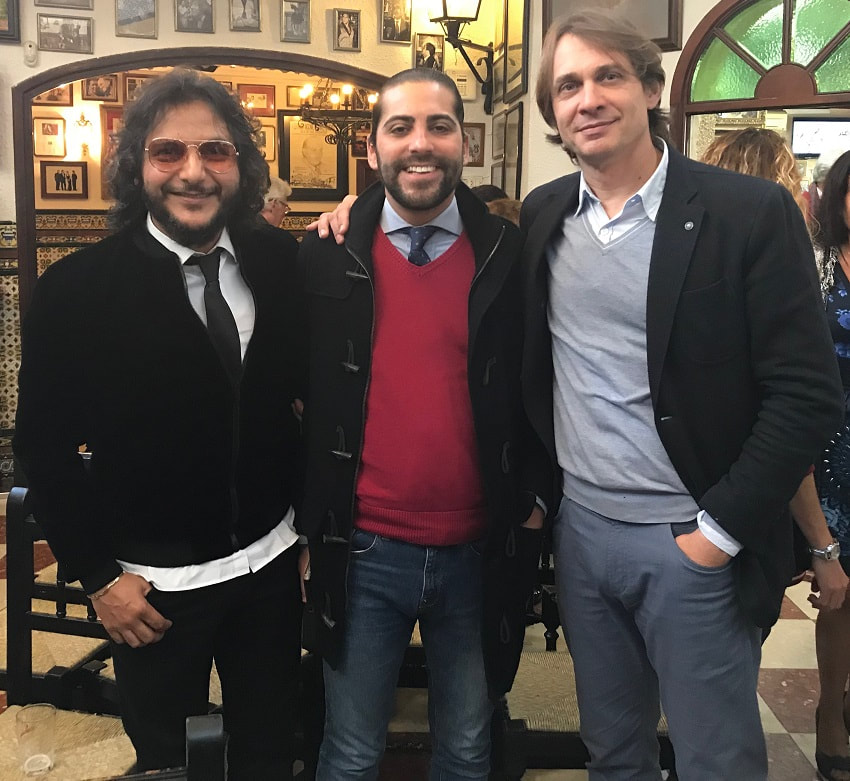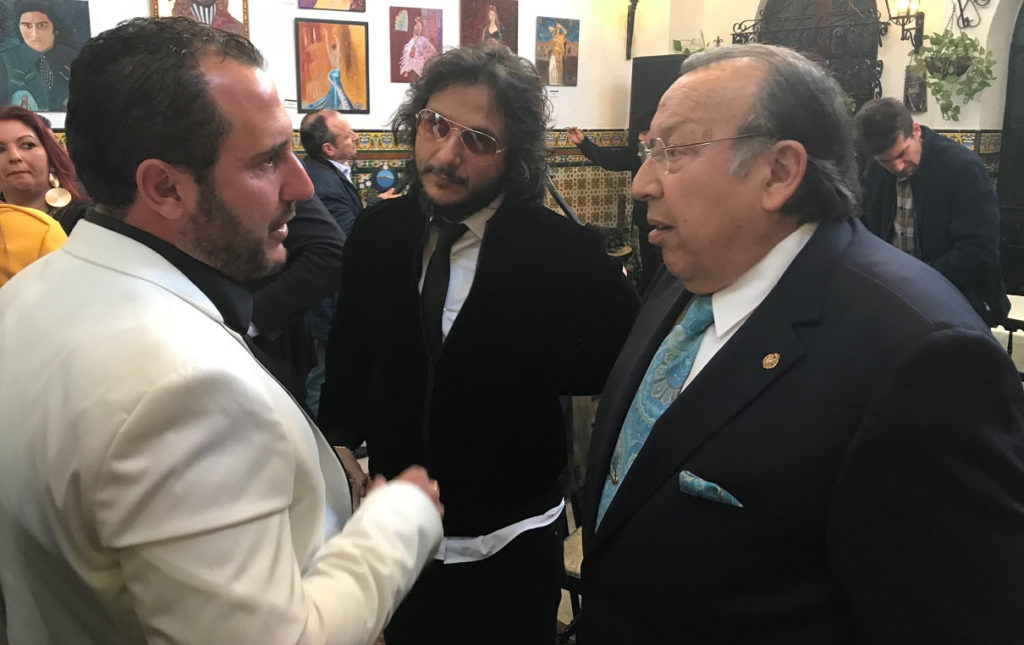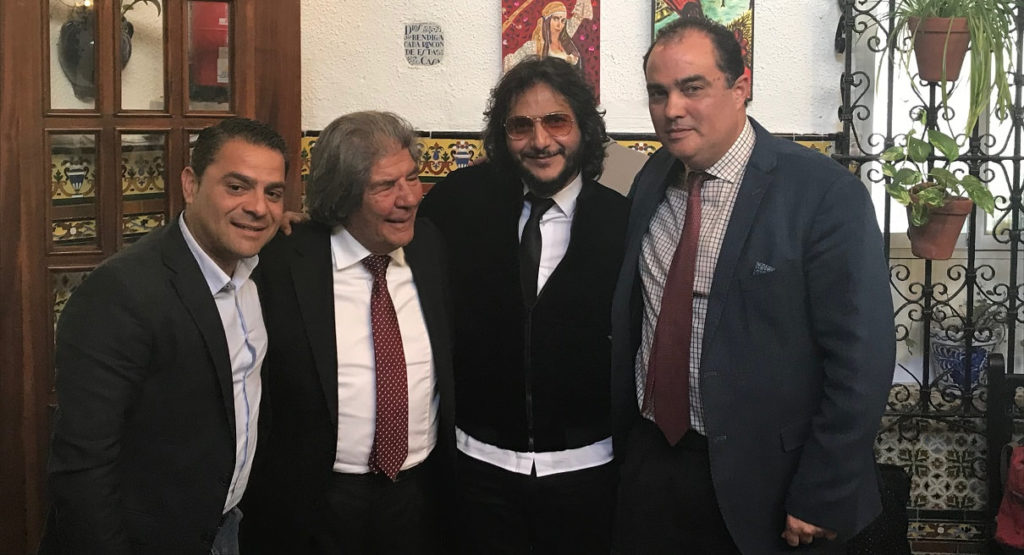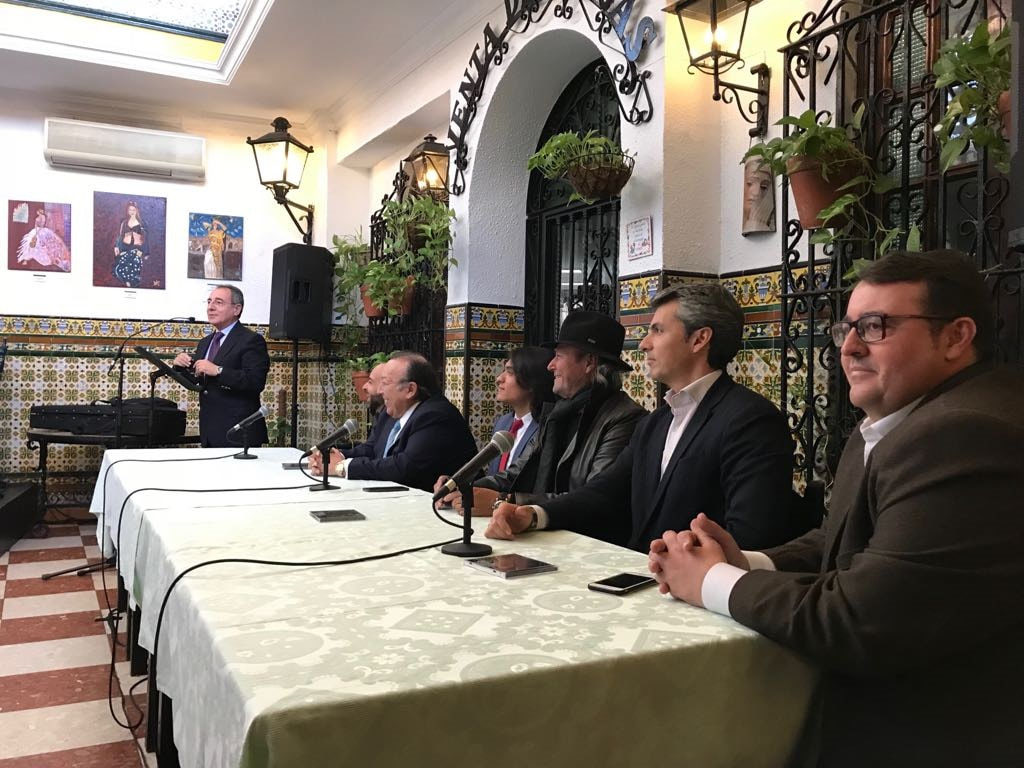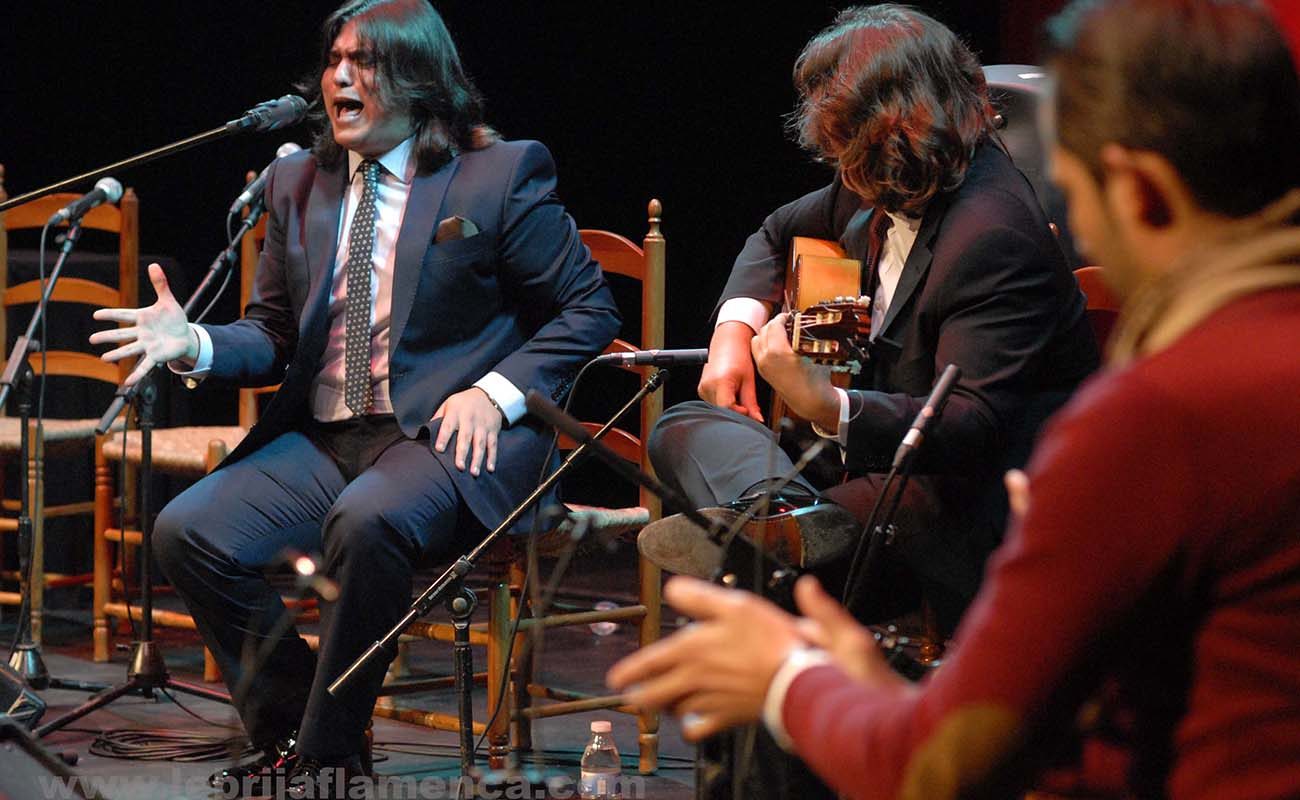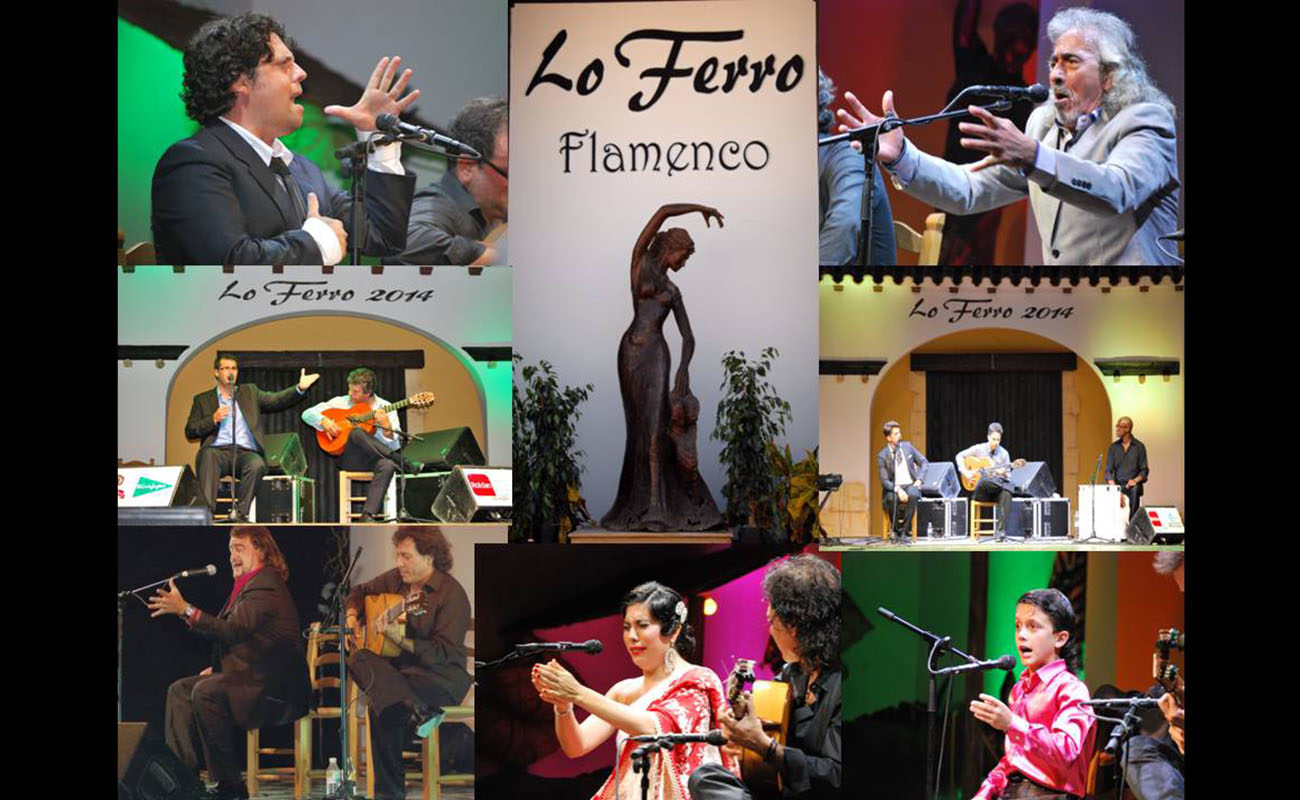Samuel Serrano and Paco Cepero release “Dos Caminos”
“Two Roads” (“Dos Caminos”), both fortunate and, very likely, with a happy ending. We’re not trying to guess the future, but in this cantaor from Chipiona we can find essence, naturality and authenticity, something very hard to find these days. It is true that those who deserve success not always achieve it, yet something very unexpected would have to happen to prevent
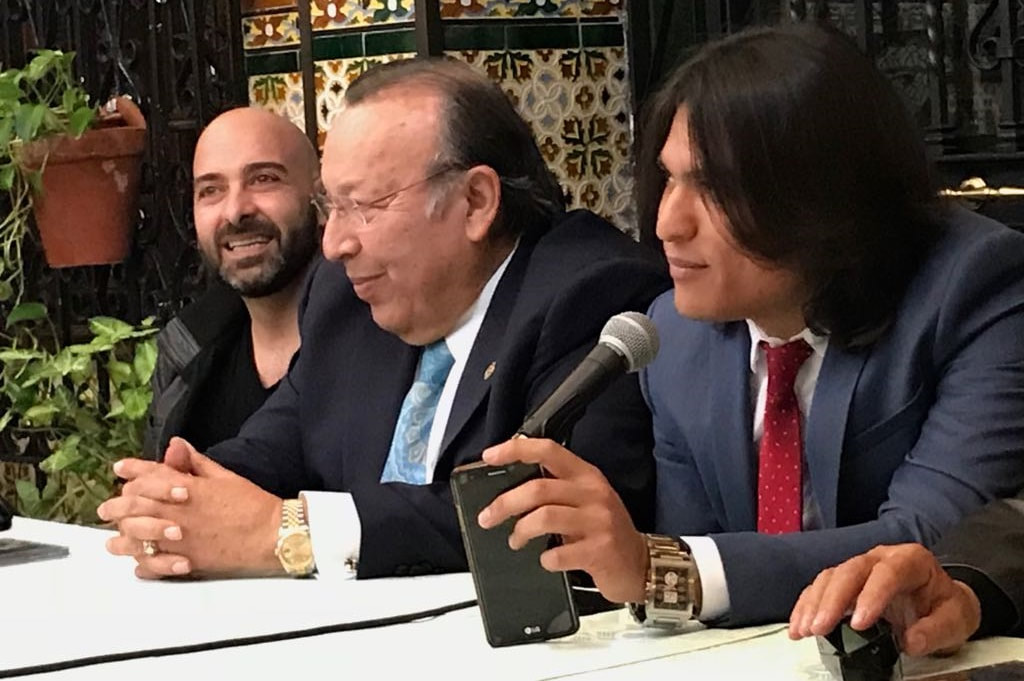
“Two Roads” (“Dos Caminos”), both fortunate and, very likely, with a happy ending. We’re not trying to guess the future, but in this cantaor from Chipiona we can find essence, naturality and authenticity, something very hard to find these days. It is true that those who deserve success not always achieve it, yet something very unexpected would have to happen to prevent Samuel Serrano from becoming a big star in a few years. At this point, when he’s not even 25 years old, he performs an old-fashioned style of cante which is loved by many, particularly the cabales (experts) of cante jondo. Belonging to the Agujetas lineage and having clear influences such as Juan Talega and José Mercé, he has entrusted Paco Cepero to produce his very convincing first album.
We could also see this in a different perspective: How lucky has Samuel Serrano been, for having the trust of Cepero! If this album is full of authenticity, it’s because its protagonist doesn’t ignore the century he lives in or the musical tastes of flamenco aficionados, and that’s why he offers an unambiguous range of orthodox flamenco in styles such as the martinete or the soleá. It’s a pleasure to listen to his fandangos, which remind us of El Chocolate, or his alegrías, where he leans his rhythm on Cepero’s guitar, which never loses the scent of his flavourful technicality with the aroma of Cádiz. The taranta and the seguiriya complete one of the two parts demanded by the album’s tittle: “Dos Caminos”.
Looking at the past, he gets to the present and finds his future. It’s unquestionable that the baton of the master from Jerez shapes this CD, something we can corroborate listening to six tracks, written by his own hand, which keep the rhythmic line that gave great success to cantaores in the golden age of festivals, such as Juan Villar, Chiquetete, Pansequito and Turronero. The authorship is shared with the poet Antonio Murciano, from Arcos de la Frontera. Following this line, we get to the bulerías (‘Mata de Romero‘), leading up to the tangos (‘Gitano canastero‘ and ‘Cobarde Cobarde‘), arriving to Spanish-Latin flamenco songs such as ‘Me estás matando‘ and ‘Águila Real‘, or the rumba ‘Pares y Nones‘, where the palmas of José Rubichi, El Bo and Paco Habano play a crucial role.
The presentation of this album took place in the historic Venta de Vargas, in the presence of artists such as Rancapino, Antonio Reyes, Antonio Carrión, José Mijita, Antonio Higuero. Also in attendance was the writer Enrique Montiel or other personalities such as Amador Mohedano (who discovered Samuel many years ago in their hometown) or the director of the Diario de Cádiz newspaper, David Fernández. The presence and contribution of Manuel Martín Martín (awarded the National Prize of Flamencology) was priceless, as he made an in-depth description of what this album represents for the artist and for flamenco. There we listened to some martinetes and fandangos, where Paco Cepero once again proved to be a brilliant guitarist and composer. Cepero thanked Diego Magallanes for his musical arrangements and also the collaboration of Juan Antonio Espinosa Soto, the sound engineer who “contributed so much” to this album.
By Juan Garrido
Translated by P. Young
